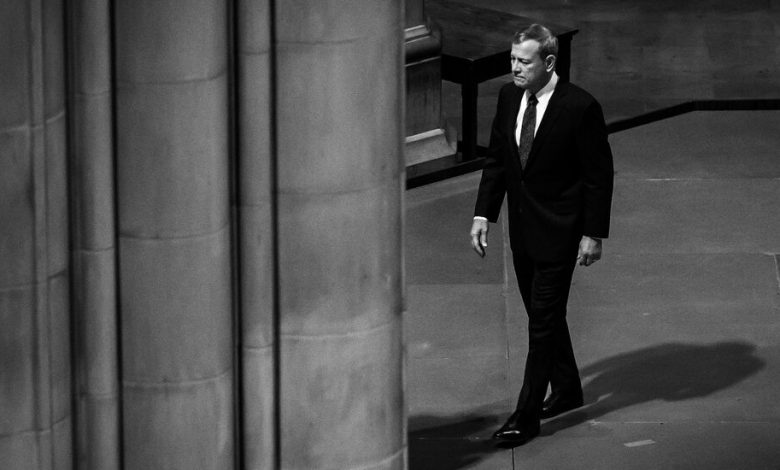How John Roberts Lost His Court

A self-described documentary filmmaker, trolling a gala dinner for a gotcha moment by engaging Supreme Court justices in conversation and surreptitiously recording their words, arguably scored with Justice Samuel Alito when he told her he shared their stated goal of returning “our country to a place of godliness.”
But with Chief Justice John Roberts, the undercover provocateur, Lauren Windsor, struck out. In response to her question about whether the court had an obligation to guide the country “toward a more moral path,” the chief justice shot back: “Would you want me to be in charge of putting the nation on a more moral path? That’s for people we elect. That’s not for lawyers.” He went on: “And it’s not our job to do that. It’s our job to decide the cases as best we can.”
Good for Chief Justice Roberts. Still, his admirable response to what he surely assumed was a private query invites a further thought. Deciding cases is indeed the court’s job. But deciding cases may not be enough these days, when the Supreme Court has plummeted in public esteem to near-historic lows (41 percent last September, according to Gallup) and every week seems to bring a new challenge to its image of probity and detachment.
It’s said with some frequency that Chief Justice Roberts, outflanked by five activist justices to his right, has “lost the court.” While that was painfully obvious in the Dobbs case two years ago, when the Alito-led majority ignored his call for restraint and barreled through to a total erasure of the constitutional right to abortion, it’s an imprecise assessment.
Approaching his 19th anniversary on the court, the chief justice surely takes satisfaction in having accomplished central elements of his own agenda. His name is on majority opinions that have curbed affirmative action, struck at the heart of the Voting Rights Act and empowered religious conservatives, all with the support of his conservative colleagues and over vigorous dissenting opinions by the liberal justices.
What he has “lost,” rather, isn’t control of the court’s judicial output, but of something less tangible but no less important: its ability to assure the public that it is functioning as a court where all parties get a fair hearing and where individual justices aren’t beholden elsewhere, either financially or politically. In the current toxic atmosphere, that’s a heavy lift, dependent on skills other than those that made John Roberts, once among the star Supreme Court lawyers of his generation, a contender for the job President George W. Bush nominated him for in September 2005.
